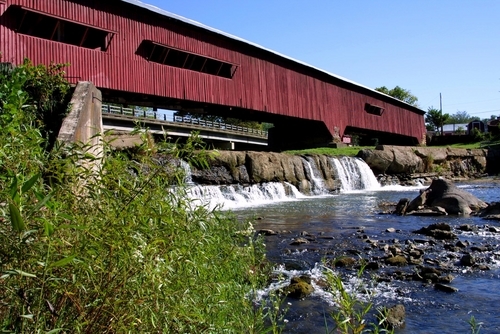This post is in response to a post on
StudentMinistry.org called “100 Blog topics I hope YOU write“:
I am in my eighth year of Youth Ministry, serving in West-Central Indiana. I
have spent the majority of this time in Rural Ministry. I come from a
Cattle/Row Crop Farm in South Illinois and have seen the Rural Youth
Ministry as a teen and as a Youth Minister. It brings challenges that are
often overlooked in Suburban/Urban youth ministry circles. I could write a
whole post just on the challenges, but maybe later. Here are a few unique
opportunities that arise in Rural Outreach:
The Importance of Connections:
In some rural areas (such as the one I serve presently) It’s been stated
multiple times “that if you’ve been here less than 20 years, you’re still an
outsider”. This is what we called an “electric fence” on the farm. If you
force yourself too close to this one too quickly, you’re going to be in for
a large shock. However, it plainly marks the boundaries of the people you
are working with. If you came from an outside area, you have to prove that
1) You are going to be around for a while and worth forging a relationship
with and 2) You respect (even if you may not completely agree with) the
social establishment of the area. In an Urban Ministry this is called
“getting street credibility”. In Rural Ministry, it often requires finding
someone that is a “lifer” that is willing to go to bat for you and introduce
the idea that you’re normal and you fit here. It might be someone that is a
lifelong member of the church, or maybe another community member that is a
“mover and shaker”. It can be vital that you establish these connections and
form the relationships early in your ministry. I have had to reach outside
the normal Youth Ministry influence circles to do this in Indiana, working
closely with some of the older adults in the church/community to show that I
come from their type of background (farming/rural). Find what bridges the
gap between you and the families you work with. Here it’s High School
football and farming. The kids could care less that I only played one year
before going back to work on the farm, they just care that I know what
they’re going through and and am taking the time to listen and understand.
Focus….Focus….Focus…..Focus Some More….
In large metro areas, there are many churches, and many people to reach. In
a rural area, there are fewer churches working for the same people and
resources. For example, the county that I live in has approximately 18,000
residents. I have to be focused on the three school districts in the county
to build relationships among the families here. If I flubb something up and
damage the relationship with a school district, it’s not a reality there
are several more to go reach in my area. One county, Three Districts, no
more, no less. I also must keep in mind that in a small rural area, there
are a few people that are involved in everything. The people who are your
church leaders are likely to be leaders in rotary, optimists, firemen, and
just about any other role you can imagine. We must carefully choose which
part(s) each volunteer plays in our ministry, because many volunteers are
bordering on burnout before any church involvement.
Recognizing the Family Structure
There is a lot assumed about the makeup of rural families, such as they
haven’t changed much in the last twenty years. That is a wrong
assumption.The rural family can be just as broken as an urban family and
just as dysfunctional. In extreme cases such as child abuse, they can take
place for prolonged periods of time before they surface, due to limited
contact with the outside world. The unemployment/economy situation in
Indiana has presented a new problem in our area. There are parents that stay
in Indianapolis (60 miles away) during the week to work, and leave their
teenage children at home to fend for themselves during the week, and it is
legal in Indiana, provided the child is over 13 years of age. This is an
opportunity built out of a hardship.
The Bottom Line
Rural Ministry has unique challenges, just like any other setting, and we as
ministers need to recognize the culture and engage it for the purpose of the
Great Commission. If we fail to recognize the differences, then we will miss
opportunities for God to be shown through our work.
There is a lot more that could be said about this topic, but this should be enough to get you thinking…

2 thoughts on “Reaching Rural Kids Versus Reaching Urban Kids:”